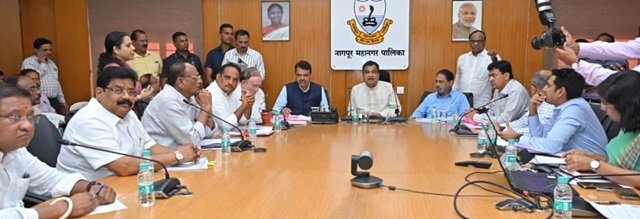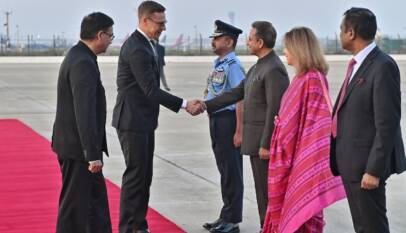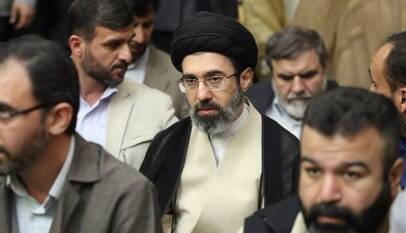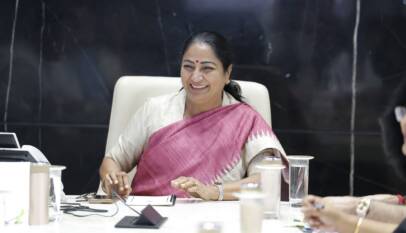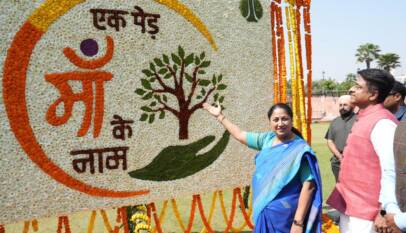Changes in Drainage, Sanitation, and Water Supply Plans are Necessary to Meet Growing Needs – DCM Devendra Fadnavis
Nagpur : With the rapid growth of Nagpur, it is essential to revise the plans for water supply, sewage, and waste management, in line with the city’s infrastructure needs. Deputy Chief Minister and Nagpur District Guardian Minister Devendra Fadnavis has directed that necessary changes be made to the master plan, especially in areas where citizens are facing difficulties. He emphasized the importance of future-proofing the city by adapting to its growing demands.
A meeting was held today at the Municipal Corporation auditorium, chaired by Union Minister Nitin Gadkari, to discuss issues related to sewage disposal, sanitation, the construction of new roads, and water supply to new settlements in the Nagpur metropolis. Attendees included Legislative Council Members Chandrashekhar Bawankule and Praveen Datke, MLAs Dr. Nitin Raut, Krishna Khopde, Mohan Mate, Vikas Kumbhare, and Vikas Thackeray, as well as Nagpur Municipal Commissioner Dr. Abhijit Chaudhary, Mahametro Managing Director Shravan Hardikar, Nagpur Reform Trust Chairman Sanjay Meena, Additional Commissioner Anchal Goyal, Smart City CEO Soumya Sharma, and Additional Commissioner Ajay Charthankar.
With the inclusion of new areas and the addition of new apartment complexes to the Nagpur Municipal Corporation limits, there is growing pressure on existing water supply, sewage pipelines, and markets. Deputy Chief Minister Fadnavis gave clear instructions to senior officials to ensure that new development projects proceed smoothly, advising them to revise past plans to accommodate future needs without disrupting ongoing work.
The Japan International Cooperation Agency (JICA) has made Rs. 2,400 crore available for the development of the Naga River and other urban projects in Nagpur. Fadnavis expressed confidence that this fund will strengthen the sewage pipeline network. He stressed the importance of coordinating these efforts across all relevant departments.
In recent months, citizens in some areas faced hardship due to waterlogging caused by blocked sewage girders during the monsoon season. To address this, Fadnavis suggested increasing the number of maintenance vehicles to ensure proper upkeep of the pipelines and girders.
Fadnavis also highlighted the need for the Municipal Corporation’s sanitation department to take full responsibility for maintaining public health, especially in light of the rise in epidemic diseases after the monsoons. He made it clear that negligence in sanitation work would not be tolerated. Additionally, since there have been complaints about the Public Health Engineering Department’s failure to effectively handle its previous duties, the decision was made to return these responsibilities to the Health Department.
Finnish President Alexander Stubb Begins Three-Day State Visit to India, Focus on Strategic and Economic Ties
New Delhi, March 2026 : Finnish President Alexander Stubb arrived in New Delhi on Wednesda…

